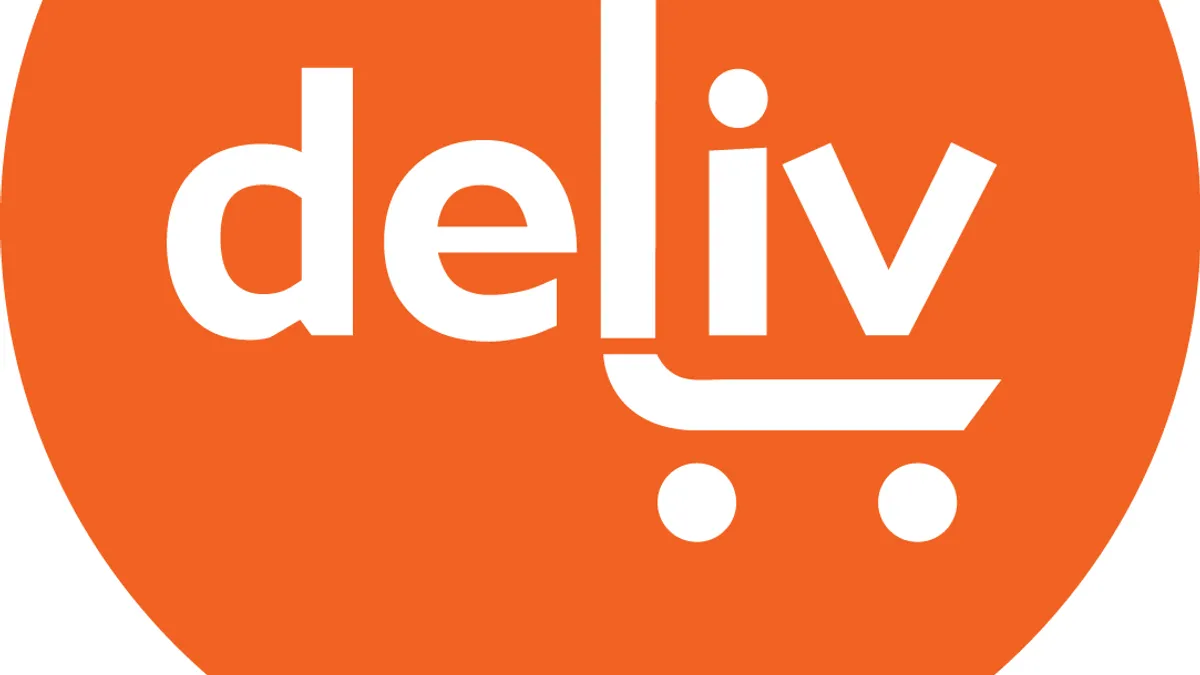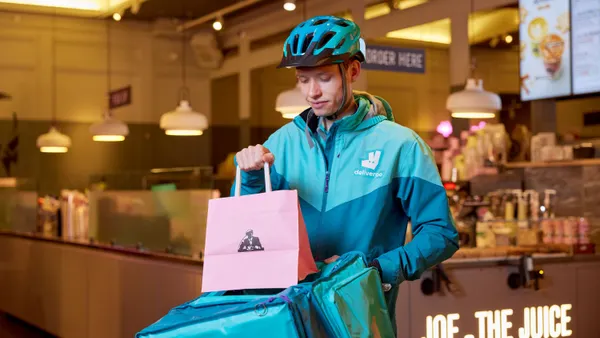Dive Brief:
- Deliv, which provides same-day deliveries for retailers like Walmart, has raised $40 million in funding, according to a news release. Sources say the investment brings the startup’s valuation to several hundred million dollars. Investors for the round include Alphabet Inc.'s Google and rental car company Enterprise Holdings.
- Deliv is based in Menlo Park, California, and operates in 1,400 cities across the U.S. It was previously valued at around $71.6 million after its last round of funding, which was more than $40 million.
- The company, which is not yet profitable, operates behind the scenes with retail partners to provide logistics software and a fleet of drivers. "We simply plug into them and power delivery for them," allowing the retailer to keep a direct connection to shoppers, Deliv founder and CEO Daphne Carmeli told The Wall Street Journal.
Dive Insight:
Although Deliv's investment is a fraction of the $600 million that Instacart recently secured, it is further evidence that investors have a major appetite for food delivery companies right now. A Wall Street Journal article reported that UberEats and DoorDash have also received major investments recently, and venture capital firms have invested $3.5 billion in food and grocery delivery services this year.
Deliv works with several retailers including Best Buy, Kohl's and Macy's. Walmart appears to be its only brick-and-mortar grocery partner — though Walmart goes well beyond food. Deliv also works with Plated, grocery startup Foodkick and Greenblender, a smoothie kit delivery service. Deliv's position as a last-mile service and diversified client base means giants like Instacart and Shipt are not direct competitors — but the startup, along with others like it, are quickly muscling into the grocery space formerly dominated by these two e-commerce players.
And while restaurant delivery may not appear to be direct threat for grocery delivery, there is certainly some overlap as consumers look for the quickest, most convenient way to get meals on their tables.
Food delivery companies are still figuring out their roles and how to position themselves in this market, and it's highly likely that the industry will see consolidation in the coming months and years. While Grubhub and Door Dash focus on delivering restaurant meals, Postmates does both grocery delivery and restaurant takeout, and Uber is exploring an entry into grocery delivery. This will continue to evolve, and grocery delivery companies will need to keep an eye on both current and potential competitors.
The company may not yet be profitable, but Deliv stands to benefit as more traditional grocers establish their own delivery services, as they’ll likely need backend software, logistics and drivers to help with their fulfillment —especially with shoppers increasingly demanding same-day delivery.
The competition among various e-commerce startups and food delivery companies is an advantage for grocers. It gives them plenty of options to build out their own delivery, and it is going to make it easier to connect with their customers through e-commerce, which is one of the most important, if not the top, priorities for grocery companies right now.














